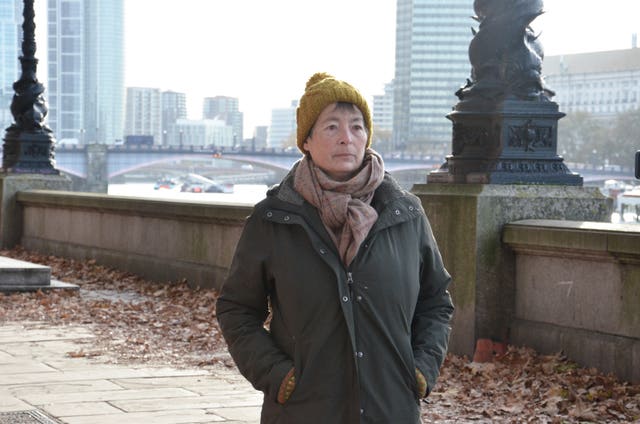Assisted dying law would be implemented in ‘safe and practicable’ way, says PM
A committee of MPs has finished scrutinising the Bill, which will return to the Commons next month.

The assisted dying Bill would be implemented “in a way that is safe and practicable” if passed into law, Sir Keir Starmer said after the time frame allowed for it to fully come into force was doubled.
The new, potential four-year wait for an assisted dying service to be up and running if a law passes in England and Wales has been branded “unreasonable” by campaigners, as terminally ill people said they needed “dignity, not delays”.
The change from an original two-year implementation period to four years was approved at the Bill committee’s final scrutiny session on Tuesday night.
MPs are expected to vote on further amendments to the Bill at report stage on April 25.
If time allows, MPs could also vote on whether to approve the Bill at third reading, which is its final stage in the Commons and decide if it is then sent to the House of Lords for further scrutiny.
Kim Leadbeater, the Labour MP behind the Bill, said she was proposing the longer time frame “with some reluctance” and acknowledged the upset felt by campaigners for change.
Speaking at Prime Minister’s Questions on Wednesday, Ms Leadbeater asked if Sir Keir would agree “that if the law is to change on assisted dying, it is extremely important that it is implemented as soon as it is safe and practicable to do so?”
The Prime Minister noted that the issue of assisted dying drew different views “across the House, and within parties”.

“So, we will continue to work with (Kim Leadbeater) as the Bill’s sponsor to do that, in the same way we would for every private members’ bill which passes second reading, and if Parliament chooses to pass this Bill, the Government will implement it in a way that is safe and practicable.”
Claire Macdonald, director of pro-change group My Death, My Decision, said it was “unreasonable that the Government would need four years to set up an assisted dying service”, saying templates for training and guidance existed in other countries where it was legal, so did not need to be developed “from scratch”.
When revealed last week, the change was described as a “retrograde step” and “outrageous” by two terminally ill supporters of legalising assisted dying.
Mother-of-two Clare Turner, who has stage four cancer, said: “Every delay means more suffering, more people forced to endure unbearable pain against their will.”

Ms Leadbeater suggested that the establishment of expert panels to consider assisted dying applications, in place of the High Court approval which was scrapped from the Bill in a significant change earlier this month, had contributed to more time being needed.
“Inevitably, this will take longer to implement than simply referring cases to the High Court, an institution that already exists,” she told MPs.
While stating that it was important to “dedicate the necessary time” to implementing safeguards in the Bill, she also noted the “upset and disappointment many people will feel as a result of a potentially longer commencement period”.
She insisted the four-year time frame was “a backstop, it’s not a target” as she pledged to “hold the Government’s feet to the fire” on implementing legislation should the Bill pass.
She added: “Putting an arbitrary timeline on such a complex issue was never a sensible way to make life-or-death legislation.”
Tuesday’s final committee session also saw the approval of the establishment of a voluntary assisted dying commissioner alongside three-member panels featuring social workers, psychiatrists and legal professionals to approve applications from terminally ill adults.
Ms Leadbeater has faced criticism from opponents of assisted dying for scrapping a High Court judge safeguard, which had initially been hailed for making the Bill the strictest in the world.
Speaking at the conclusion of the committee’s last session, Ms Leadbeater said: “We are not removing judges from this process. Rather, we are adding the expertise and experience of psychiatrists and social workers to provide extra protections in the areas of assessing mental capacity and detecting coercion while retaining judicial oversight.”
It has been suggested that some MPs who supported the Bill in the Commons in November could change their stance when it returns for a further vote, after the change to the High Court safeguard.
But Ms Leadbeater has said the Terminally Ill Adults (End of Life) Bill, as amended, is now “safer, fairer, and more workable”.
A majority of committee members also approved new measures under the Bill, which would see assisted dying available free on the NHS.
Ms Leadbeater said this would give choice to all, but leading opponent Danny Kruger argued it fundamentally changes the principles on which the health service was founded.
The Conservative MP said the NHS would, if the Bill passes into law, become the “national health and assisted suicide service” as he accused those behind it of taking a “red pen to Bevan’s legacy”, referring to the NHS’s chief architect Aneurin “Nye” Bevan.
The two new clauses impose a duty on a secretary of state in England and give power to ministers in Wales, where health is devolved, to ensure the provision of voluntary assisted dying services.
She added that the same requirements would apply to all medical practitioners, that they “cannot benefit financially or in any material way from the death of a person and can only receive reasonable remuneration for providing a service”.
Former MP Caroline Ansell, who is now director of advocacy and policy at Christian Action Research and Education, said the Bill should be voted down when it returns to the Commons.
She said: “The Terminally Ill Adults (End of Life) Bill is riddled with problems. Wherever MPs stand on the principle behind it, they should reject it at Third Reading.”





